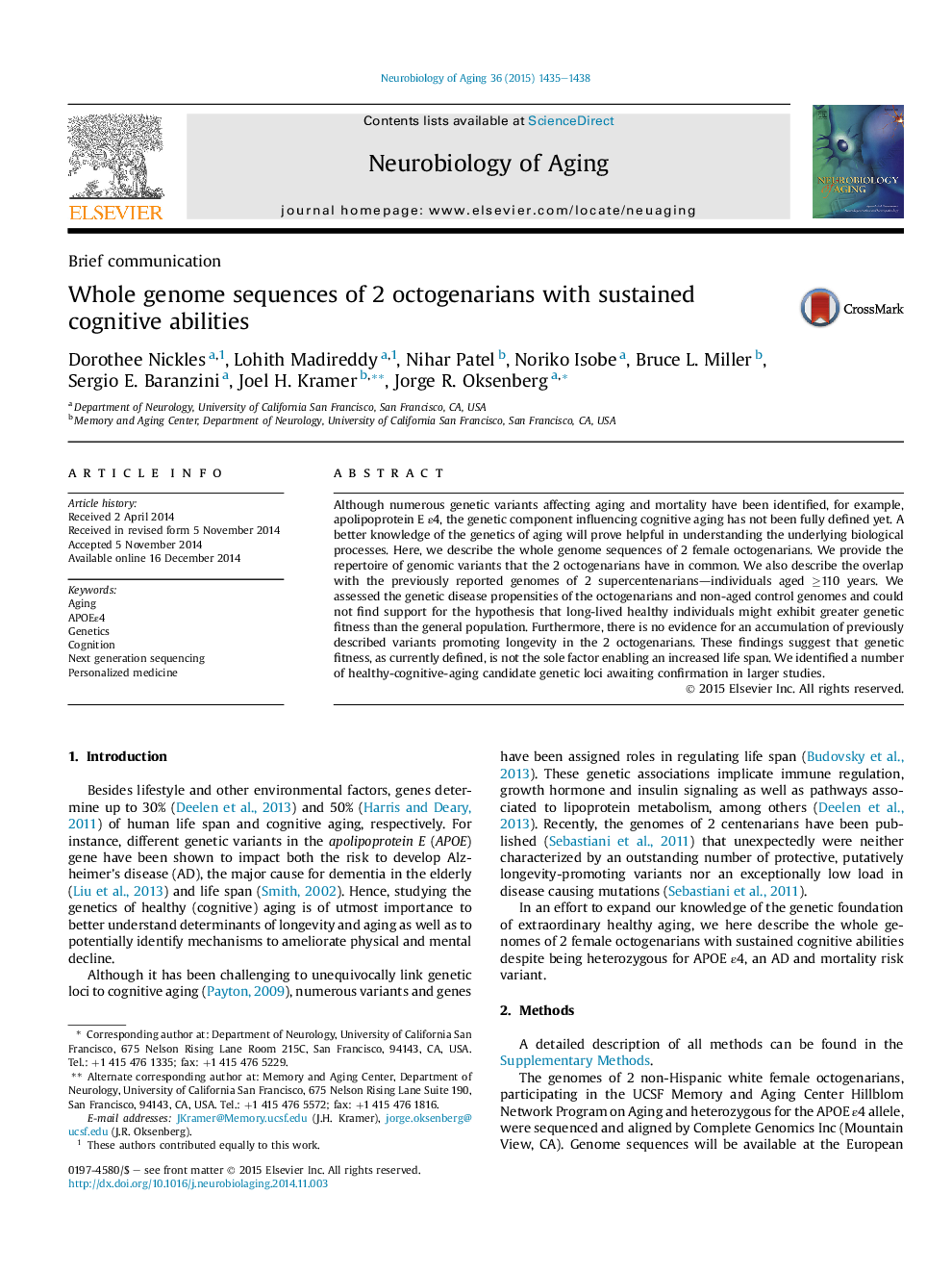| Article ID | Journal | Published Year | Pages | File Type |
|---|---|---|---|---|
| 6804610 | Neurobiology of Aging | 2015 | 4 Pages |
Abstract
Although numerous genetic variants affecting aging and mortality have been identified, for example, apolipoprotein E ε4, the genetic component influencing cognitive aging has not been fully defined yet. A better knowledge of the genetics of aging will prove helpful in understanding the underlying biological processes. Here, we describe the whole genome sequences of 2 female octogenarians. We provide the repertoire of genomic variants that the 2 octogenarians have in common. We also describe the overlap with the previously reported genomes of 2 supercentenarians-individuals aged â¥110 years. We assessed the genetic disease propensities of the octogenarians and non-aged control genomes and could not find support for the hypothesis that long-lived healthy individuals might exhibit greater genetic fitness than the general population. Furthermore, there is no evidence for an accumulation of previously described variants promoting longevity in the 2 octogenarians. These findings suggest that genetic fitness, as currently defined, is not the sole factor enabling an increased life span. We identified a number of healthy-cognitive-aging candidate genetic loci awaiting confirmation in larger studies.
Related Topics
Life Sciences
Biochemistry, Genetics and Molecular Biology
Ageing
Authors
Dorothee Nickles, Lohith Madireddy, Nihar Patel, Noriko Isobe, Bruce L. Miller, Sergio E. Baranzini, Joel H. Kramer, Jorge R. Oksenberg,
